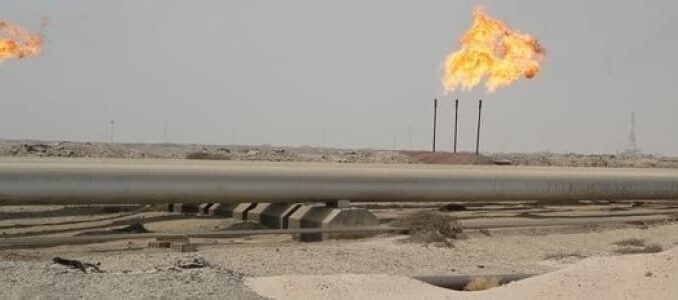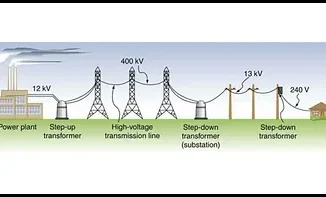
There are three major troubling factors for new U.S. President Joe Biden. In the recently agreed US$2 billion five–year prepayment oil supply deal between the Federal Government of Iraq (FGI) in Baghdad and China’s Zhenhua Oil. First, is that the deal is straight out of the playbook that Russia used to gain control over Iraq’s semi-autonomous northern region of Kurdistan in 2017. Second, according to various sources close to Iraq’s Oil Ministry spoken to by OilPrice.com last week, this deal between Russia’s Rosneft and the government of Kurdistan (the KRG) meant that Moscow was able to cause such disruption in the budget payments-for-oil deal between Kurdistan and Baghdad that the resulting financial crunch for the FGI pre-disposed Baghdad to look beneficially at the China proposal in the first place. This implies clearly that Russia and China are directly acting in concert to carve up the Middle East after it was effectively vacated by former President Donald Trump. And third, it means that China is directly testing Biden’s ability to separate trade considerations from security considerations – as Trump frequently traded the latter off for the former – to see what the new U.S. President’s reaction will be, particularly given that Zhenhua Oil is an ‘in your face’ arm of China’s defence contractor Norinco. Looking at the Russian Kurdistan deal first as a comparison point for the new China FGI deal, the Kremlin’s corporate oil proxy, Rosneft, effectively took over the ownership of Kurdistan’s oil sector in 2017 through three principal manoeuvres. First, Russia provided the KRG with US$1.5 billion in financing through a three to five year prepayment oil supply deal, exactly the same as the deal just agreed between Baghdad and China. Second, it took an 80 per cent working interest in five potentially major oil blocks in the Kurdistan region together with corollary investment and technical, technology, and equipment assistance. And third, it established 60 per cent ownership of the vital KRG oil pipeline into southern Europe’s port of Ceyhan in Turkey by dint of a commitment to invest US$1.8 billion to increase its capacity to one million barrels per day.
From the moment that Russia had gained control in Kurdistan it began to create problems with the FGI in southern Iraq, particularly by using the budget disbursements for oil deals as leverage. Having taken over control of the Kirkuk oil fields from Kurdish forces in October 2017, following rioting after Baghdad failed to recognise the ‘yes’ vote on independence referendum in September 2017, the FGI found itself dependent on the KRG, as the Kurds possessed the only operational export pipeline (to Ceyhan) for oil into southern Europe out of Iraq. This affected some 300,000 bpd of crude oil previously pumped in the Kirkuk province. Russia, though, insisted through the KRG that oil flows would not restart until pipeline transit fees and pumping tariffs were paid to Rosneft. Moscow also wanted the FGI to look again at its decision to deem ‘invalid’ the assignment to Rosneft by the KRG of five exploration blocks in Kurdish territory. These are estimated to have aggregate 3P reserves of 670 million barrels, and Rosneft has an 80 per cent stake in each.
Under the previous FGI administration of Prime Minister, Haider al-Abadi, the signs were that some accommodation of the demands of Rosneft, and the KRG, might be in the offing. There had been some movement on the percentage basis for the budget compensation, up from just under 13 per cent of the total Iraq budget, and there had been a ratification of the idea that Baghdad would return significant volumes of oil to Kurdistan for local refining and it had even been acknowledged that a pumping tariff might be paid to Rosneft. At that time, then-Oil Minister Jabar al-Luaibi even said that he was willing to accommodate Rosneft in the Kirkuk oil hub itself, highlighting that Baghdad did not want to close the doors in the face of anyone who wanted to help. The only condition at that point was that Rosneft should work with BP (which, as BP owned a 19.75 per cent stake in Rosneft), did not appear to be an insurmountable requirement. At that point in time, wishing to safeguard the legitimate government in Baghdad, Washington brought pressure to bear on the FGI in Baghdad and on the KRG to at least partially resume FGI-directed exports of Kirkuk crude oil through the Kurdistan-Turkey pipeline, with the aim of keeping oil prices lower given the absence of Iranian supply, after the U.S. re-imposed sanctions on Iran in 2018 but the budget disbursements for oil deal originally agreed in 2014 has rarely operated as intended since then.
This, in turn, has been a major contributing factor in the FGI’s subsequent financial troubles, which was approaching a potentially catastrophic point last August when new Prime Minister, Mustafa al-Kadhimi, had to visit Washington to beg for funding. At that point, al-Kadhimi needed to come up with at least IQD12 trillion (US$10 billion) just to pay the next two months salaries of more than four million employees, retirees, state beneficiaries, and the food relief for low-income families. These groups together constitute the majority of households in Iraq and it is believed in senior Iraq government circles that any failure to pay any of these obligations could result in the sort of widespread protests and bloodshed that occurred at the end of 2019. Washington agreed to a series of investments and financing worth around US$8 billion, including deals with Chevron, General Electric, Honeywell International, Baker Hughes, and Stellar Energy – but on the proviso that Iraq reduced its dependence on Iran. This commitment was specifically to be evidenced in the first instance by gradually decreasing its electricity and gas imports from Iran for which it was regularly receiving a sanctions waiver from Washington. Almost after this, Iraq signed a two-year contract – the longest such deal ever – for the export of electricity and gas from Iran. After that, U.S. State Department spokeswoman, Morgan Ortagus, announced the shortest-ever waiver for Iraq to import Iranian electricity and gas and also announced new sanctions against 20 Iran- and Iraq-based entities that were cited as funnelling money to Iran’s Islamic Revolutionary Guards Corps’ elite Quds Force.



